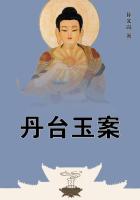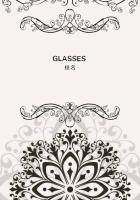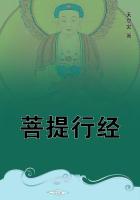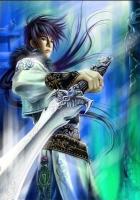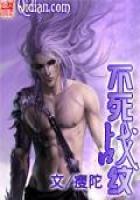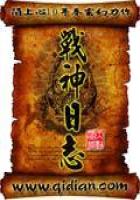From the idea of the subject which is contained in these first two points of view, it is necessary to pass on to the consideration of the third point, to the general review of this history and to the division of its progress into natural periods-such an arrangement to exhibit it as an organic, progressive whole, as a rational connection through which this history attains the dignity of a science. And I will not occupy further space with reflections on the use of the history of Philosophy, and other methods of treating it. The use is evident. But, in conclusion, I wish to consider the sources of the history of Philosophy, for this is customary.
Introduction A. The Notion of the History of Philosophy.
THE thought which may first occur to us in the history of Philosophy, is that the subject itself contains an inner contradiction. For Philosophy aims at understanding what is unchangeable, eternal, in and for itself: its end is Truth. But history tells us of that which has at one time existed, at another time has vanished, having been expelled by something else. Truth is eternal; it does not fall within the sphere of the transient, and has no history. But if it has a history, and as this history is only the representation of a succession of past forms of knowledge, the truth is not to be found in it, for the truth cannot be what has passed away.
It might be said that all this argument would affect not only the other sciences, but in like decree the Christian religion, and it might be found inconsistent that a history of this religion and of the other sciences should exist; but it would be superfluous further to examine this argument, for it is immediately contradicted by the very fact that there are such histories. But in order to get a better understanding of this apparent contradiction, we must distinguish between the outward history of a religion or a science and the history of the subject itself. And then we must take into account that the history of Philosophy because of the special nature of its subject-matter, is different from other histories. It is at once evident that the contradiction in question could not refer to the outward history, but merely to the inward, or that of the content itself. There is a history of the spread of Christianity and of the lives of those who have avowed it, and its existence has formed itself into that of a Church. This in itself constitutes an external existence such that being brought into contact with temporal affairs of the most diverse kind, its lot is a varied one; and it essentially possesses a history. And of the Christian doctrine it is true that it, too, has its history, but it necessarily soon reached its full development and attained to its appointed powers. And this old creed has been an acknowledged influence to every age, and will still be acknowledged unchanged as the Truth, even though this acknowledgment were become no more than a pretence, and the words an empty form. But the history of this doctrine in its wider sense includes two elements: first the various additions to and deviations from the truth formerly established, and secondly the combating of these errors, the purification of the principles that remain from such additions, and a consequent return to their first simplicity.
The other sciences, including Philosophy, have also an external history like Religion. Philosophy has a history of its origin, diffusion, maturity, decay, revival; a history of its teachers, promoters, and of its opponents-often too, of an outward relation to religion and occasionally to the State.
This side of its history likewise gives occasion to interesting questions. Amongst other such, it is asked why Philosophy, the doctrine of absolute Truth, seems to have revealed itself on the whole to a small number of individuals, to special nations, and how it has limited itself to particular periods of time. Similarly with respect to Christianity, to the Truth in a much more universal form than the philosophical, a difficulty has been encountered in respect to the question whether there is a contradiction in the fact that this religion should have appeared so late in time, and that it should have remained so long and should still remain limited to special races of men. But these and other similar questions are too much a matter of detail to depend merely on the general conflict referred to, and when we have further touched upon the peculiar character of philosophic knowledge, we may go more specially into the aspects which relate to the external existence and external history of Philosophy.
But as regards the comparison between the history of Religion and that of Philosophy as to inner content, there is not in the latter as there is in Religion a fixed and fundamental truth which, as unchangeable, is apart from history. The content of Christianity, which is Truth, has, however, remained unaltered as such, and has therefore little history or as good as none. (2) Hence in Religion, on account of its very nature as Christianity, the conflict referred to disappears. The errors and additions constitute no difficulty. They are transitory and altogether historical in character.
The other sciences, indeed, have also according to their content a History, a part of which relates to alterations, and the renunciation of tenets which were formerly current. But a great, perhaps the greater, part of the history relates to what has proved permanent, so that what was new, was not an alteration on earlier acquisitions, but an addition to them. These sciences progress through a process of juxtaposition. It is true that in Botany, Mineralogy, and so on, much is dependent on what was previously known, but by far the greatest part remains stationary and by means of fresh matter is merely added to without itself being affected by the addition. With a science like Mathematics, history has, in the main, only the pleasing task of recording further additions. Thus to take an example, elementary geometry in so far as it was created by Euclid, may from his time on be regarded as having no further history.
The history of Philosophy, on the other hand, shows neither the motionlessness of a complete, simple content, nor altogether the onward movement of a peaceful addition of new treasures to those already acquired. It seems merely to afford the spectacle of ever-recurring changes in the whole, such as finally are no longer even connected by the common aim.

